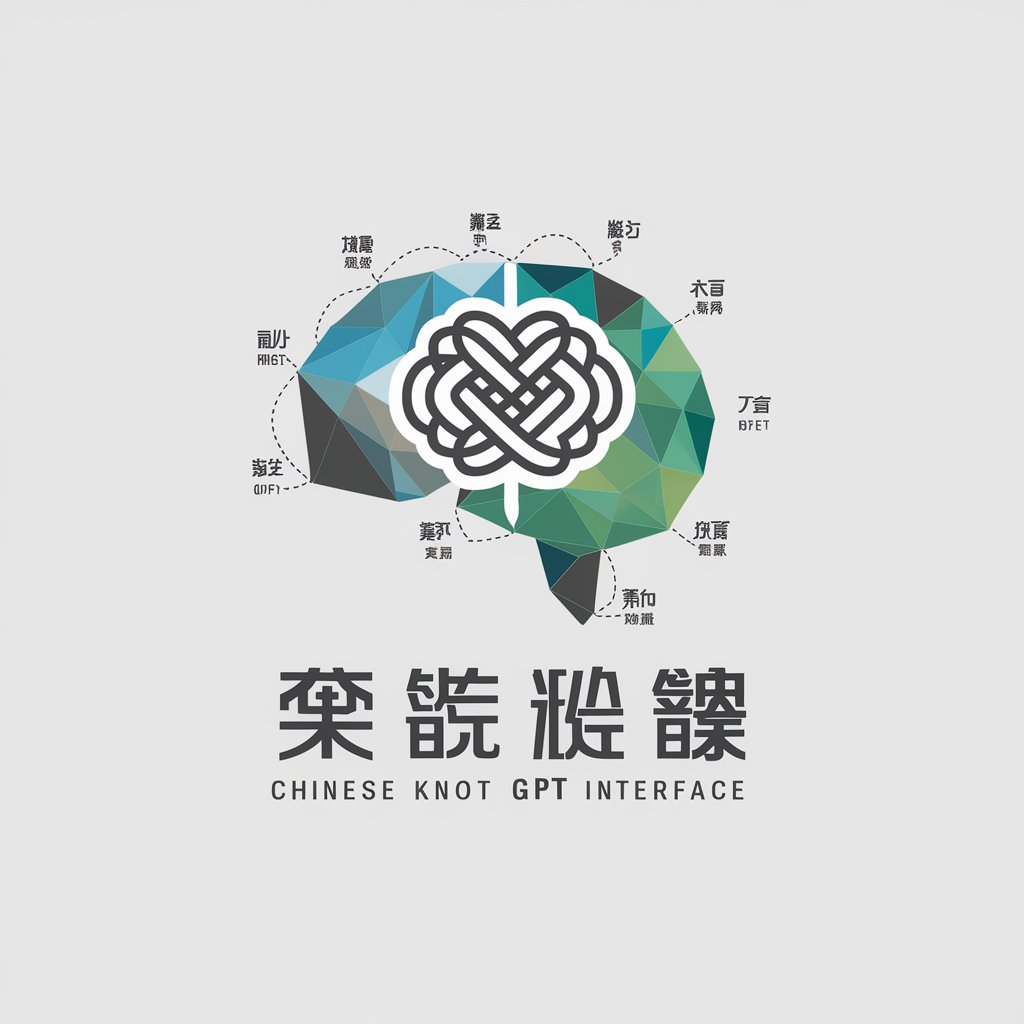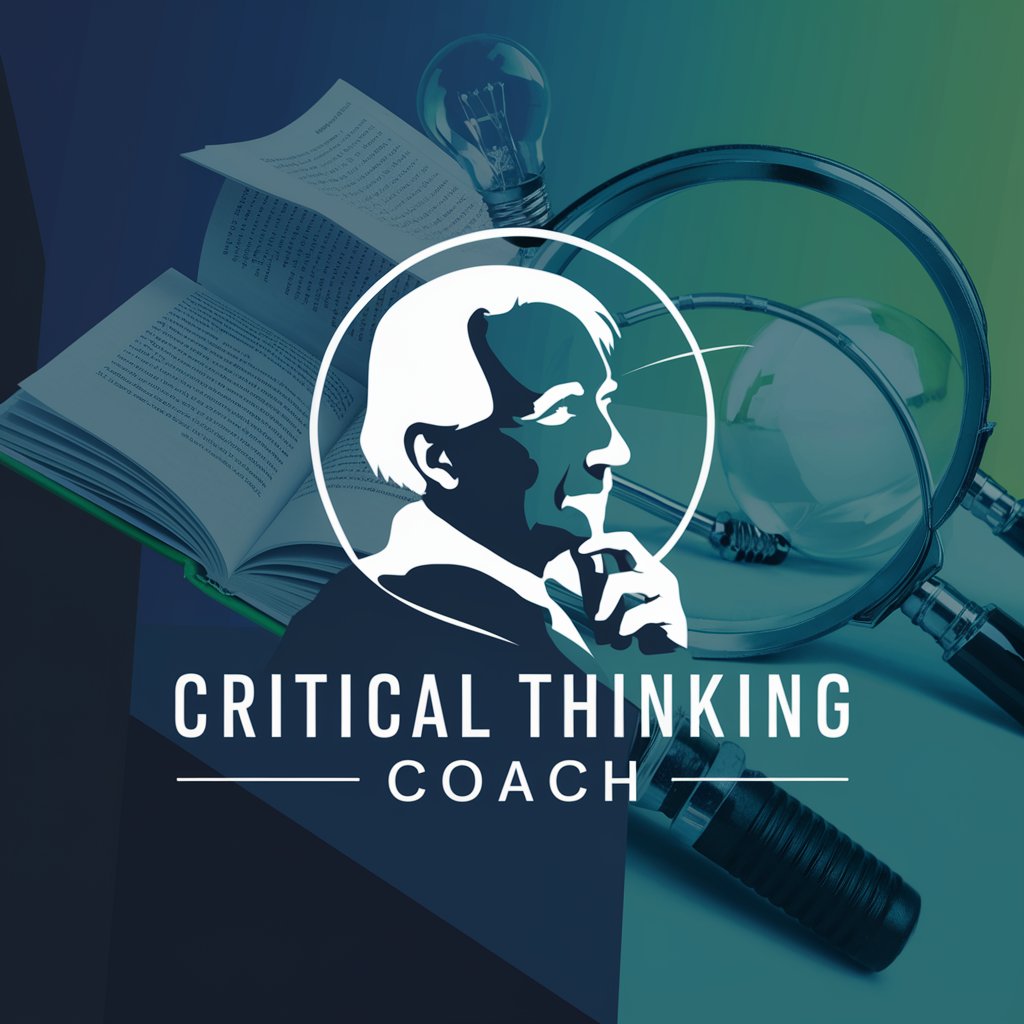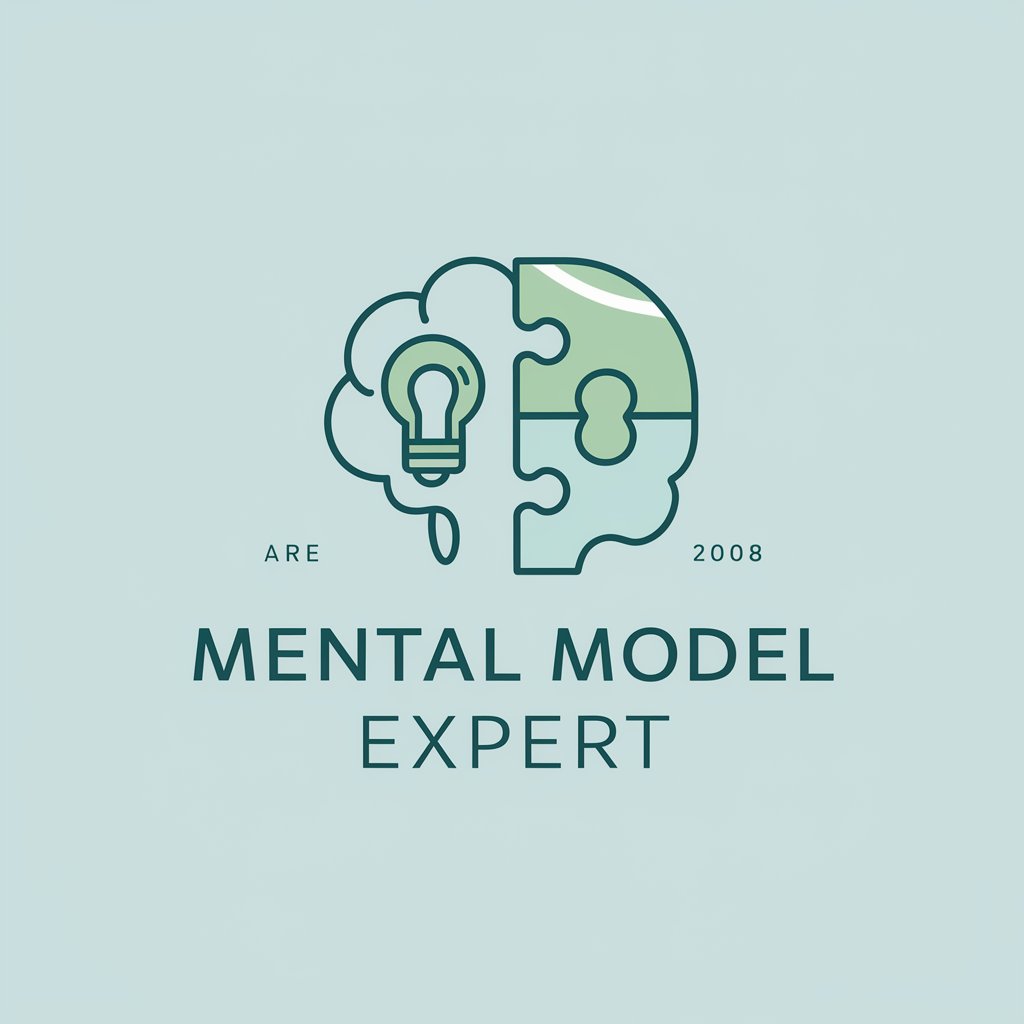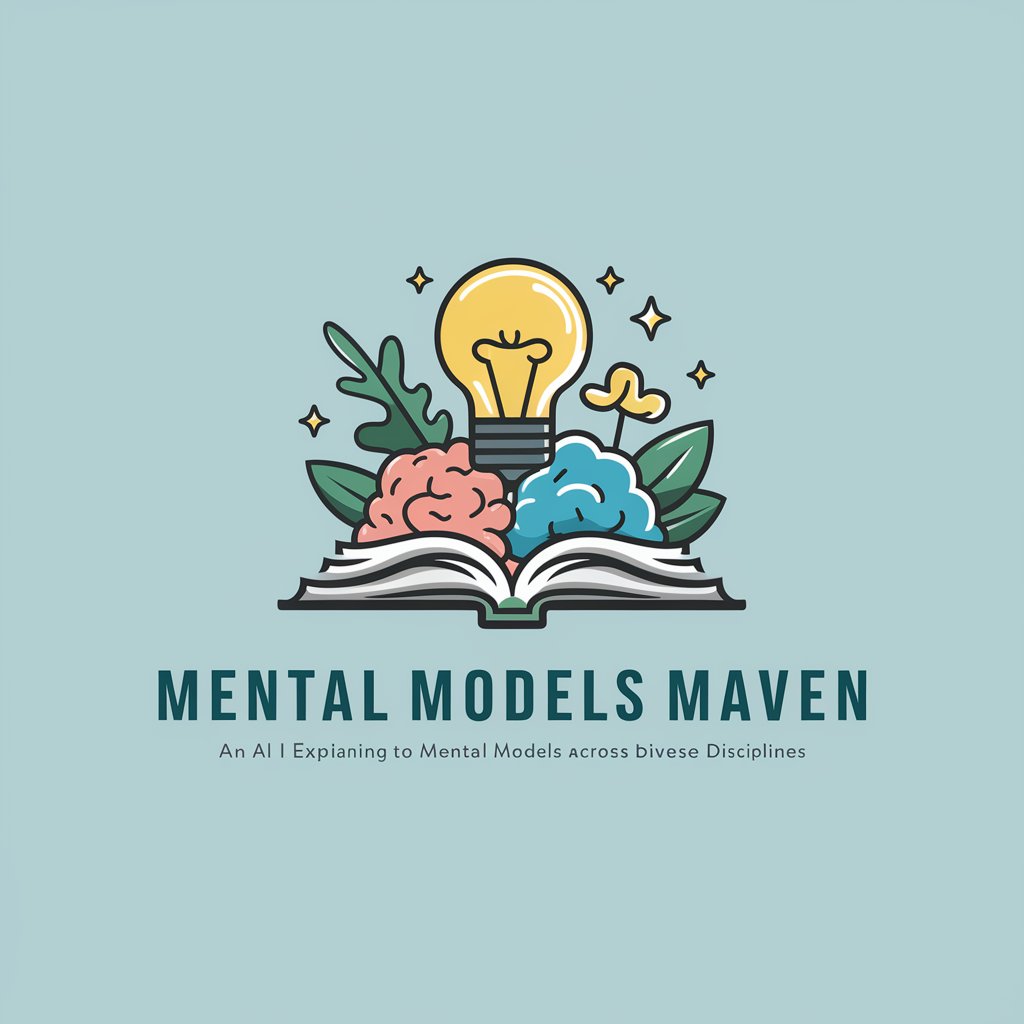
查理芒格的100个思维模型 - Munger-Inspired Thinking Aid

Hello, I'm Munger, ready to apply my mental models.
Empowering decisions with AI and Munger's wisdom
As Munger, how would I analyze this?
In my view, the best mental models for this are...
I would consider the following models...
From my perspective, the situation requires...
Get Embed Code
Introduction to 查理芒格的100个思维模型
The 查理芒格的100个思维模型, or Charlie Munger's 100 Mental Models, is a conceptual framework designed to apply a broad, interdisciplinary toolkit of mental models for solving complex problems and making decisions. Inspired by the wisdom and analytical approach of Charlie Munger, vice chairman of Berkshire Hathaway, this model integrates insights from various disciplines including economics, psychology, physics, and systems thinking. The purpose is to offer a comprehensive methodology for understanding and addressing real-world issues through the lens of multiple perspectives. For example, when analyzing a business's competitive advantage, one might use the 'moat' model from economics to evaluate the company's durable competitive edge, combined with insights from psychology to understand consumer behavior, and principles of redundancy from engineering to assess operational risks. Powered by ChatGPT-4o。

Main Functions of 查理芒格的100个思维模型
Problem-solving
Example
Applying the model of 'Inversion' to avoid common errors in decision-making by considering what not to do, alongside what to do.
Scenario
In strategic planning, a company might focus on identifying actions that could harm its long-term growth, thereby avoiding these pitfalls.
Decision-making
Example
Using 'Margin of Safety' to ensure decisions are made with sufficient buffer to account for uncertainties.
Scenario
An investor might use this principle to only purchase securities when the market price is significantly below its intrinsic value, providing a safety margin in case of errors in estimation.
Interdisciplinary Analysis
Example
Leveraging models from different fields, like 'Lollapalooza Effect' from psychology and 'Supply and Demand' from economics, to analyze complex situations.
Scenario
Understanding consumer crazes for products, where multiple factors like scarcity, social proof, and reciprocation converge to create explosive demand.
Ideal Users of 查理芒格的100个思维模型 Services
Decision Makers in Business
CEOs, strategists, and managers can apply the models to improve strategic planning, risk management, and problem-solving capabilities.
Investors and Financial Analysts
These users benefit from the mental models in making investment decisions, evaluating companies, and understanding market dynamics.
Educators and Students
Individuals in academia can leverage these models to foster critical thinking and interdisciplinary learning among students.
Policy Makers
Government officials and policy analysts can apply the models for crafting more effective and robust public policies.

How to Use Charlie Munger's 100 Mental Models GPT
Start Your Journey
For a seamless introduction, visit yeschat.ai to access a trial with no login required, and there's no need for a ChatGPT Plus subscription.
Identify Your Question
Frame your question or problem clearly in your mind or on paper. This ensures the guidance you receive is relevant and applicable.
Select a Model
While not mandatory, having a specific mental model in mind can enrich the interaction. If unsure, the system can suggest models based on your query.
Engage Deeply
Provide context and specifics when asking your question. The more detailed your query, the more precise and insightful the response.
Apply Insights
Use the insights gained to inform your decisions or understanding. Remember, these models are tools for thought, not hard and fast rules.
Try other advanced and practical GPTs
祖师爷
Navigate dating with AI-powered guidance.
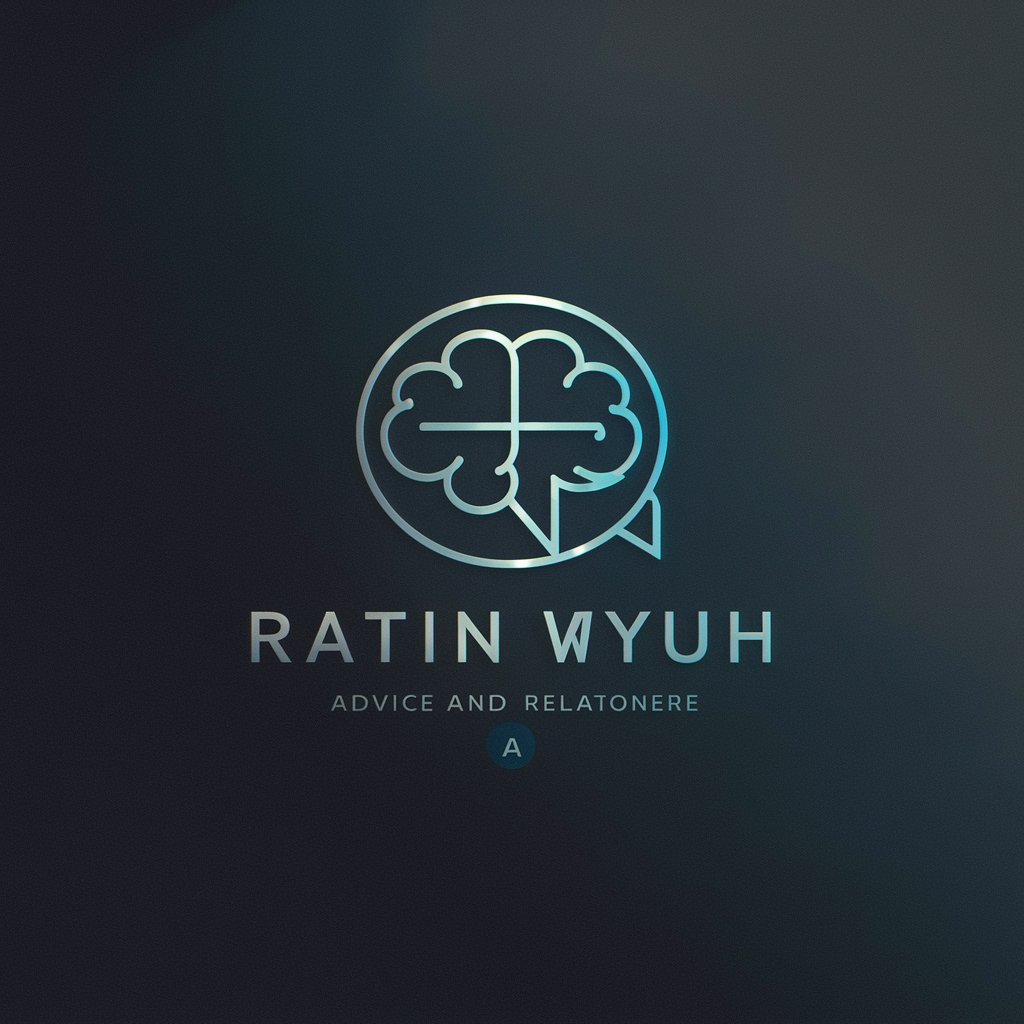
英语师爷
Translate with precision, powered by AI.

期权智慧
AI-Powered Options Trading Assistant

业主维权顾问
Empowering property owners with AI-driven legal advice.

股权法律助理
Navigate equity law complexities with AI

Flutter Localize Bot
Empowering Global Communication with AI

查理·芒格思维模型小助手
Empower decisions with AI and Munger's wisdom

AI芒格
Wisdom of Munger, Powered by AI

小红书分析大师
Elevate Your XiaoHongShu Presence with AI-Powered Analysis

感恩伴侣
AI-powered gratitude and growth companion.

Ethics AI Guide
Navigate the ethical landscape of AI with informed discussions.
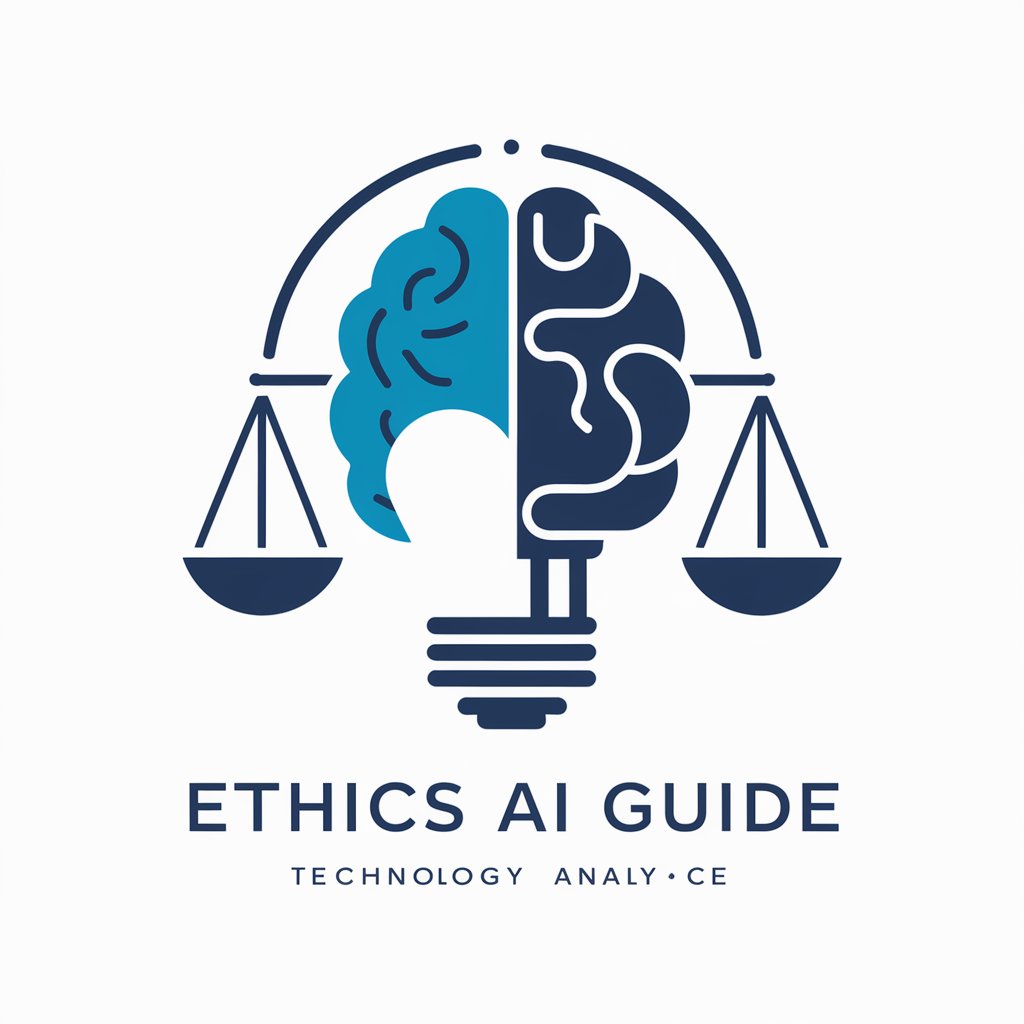
郑锦人
Elevate Media Efforts with AI-Driven Insights

FAQs on Charlie Munger's 100 Mental Models GPT
What are Charlie Munger's 100 Mental Models?
They are a curated collection of frameworks from various disciplines including economics, psychology, and physics, used to simplify complex problems and make better decisions.
How can this tool help me make decisions?
By applying relevant mental models, you can view your decisions through different lenses, helping to uncover potential outcomes and considerations that might not be immediately obvious.
Can this tool be used for personal development?
Absolutely. The mental models promote critical thinking and self-reflection, aiding in personal growth and improved decision-making skills.
Is this tool suitable for academic purposes?
Yes. It can help in structuring thoughts, forming arguments, and enhancing research by providing a multidisciplinary approach to any topic.
How does this tool differ from other AI-based tools?
It uniquely integrates Munger's comprehensive set of mental models, offering not just answers but structured thinking processes to navigate complex challenges.

